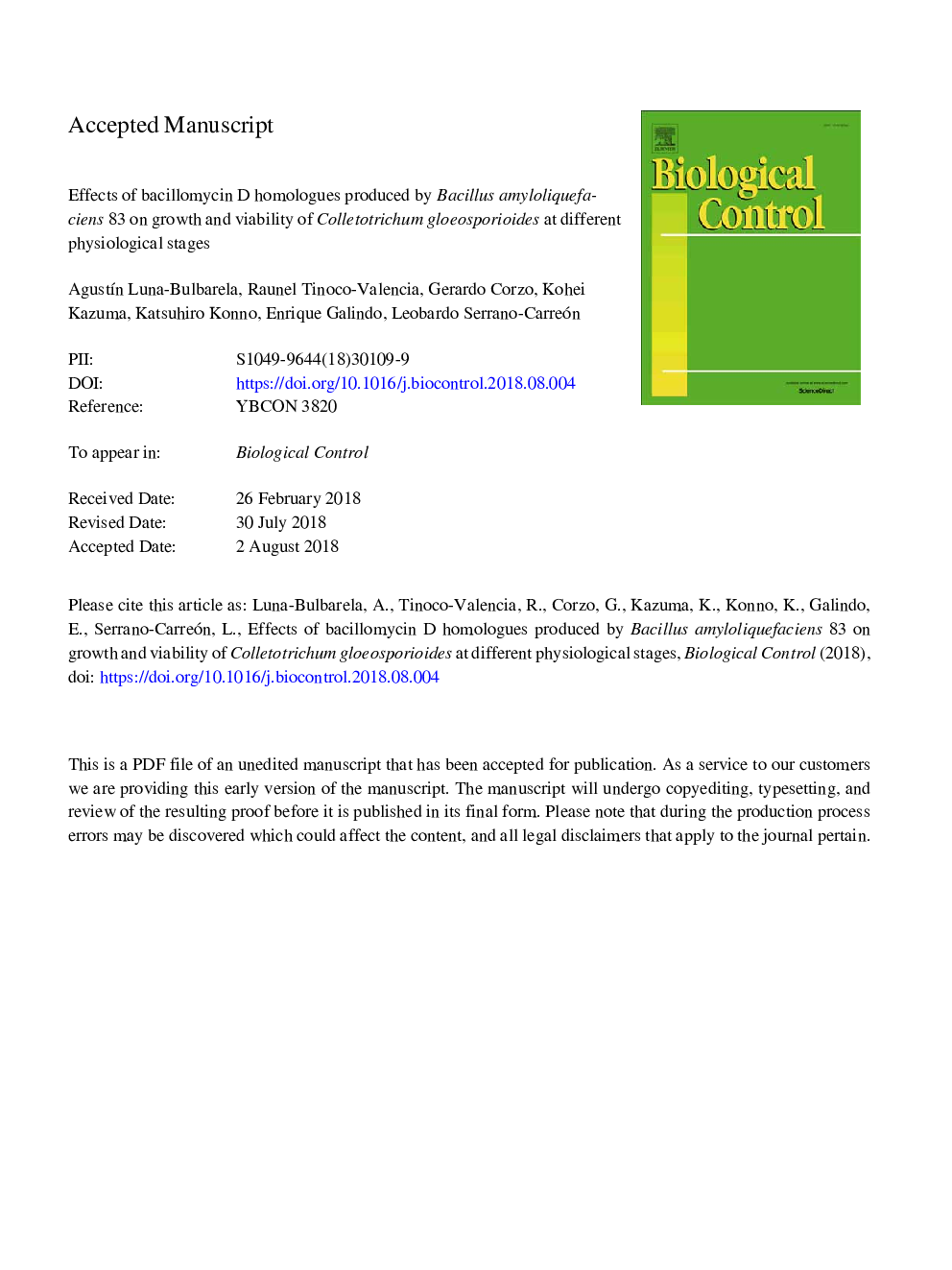| Article ID | Journal | Published Year | Pages | File Type |
|---|---|---|---|---|
| 11031768 | Biological Control | 2018 | 39 Pages |
Abstract
Bacillus amyloliquefaciens strain 83 is a bacterium isolated from mango phyllosphere effective to control anthracnose in various tropical crops. The antifungal activity of bacillomycin D homologues, produced by this strain, against Colletotrichum gloeosporioides was characterized in this study. Minimum inhibitory concentration (MIC100) of bacillomycin D homologues revealed that slight changes in the fatty acid chain length (hydrophobicity) of bacillomycin D cause significant differences of its antifungal activity against spores but no significant differences were found against mycelium. These lipopeptides inhibit both spore germination and mycelial growth. Mycelium was more susceptible to bacillomycin D homologues than spores. Propidium iodide staining of spores and mycelium showed that bacillomycin D causes damage to the cell membranes which directly correlates with its viability. The present work explores the relationship between the chemical structure and biological activity of bacillomycin homologues. As synergism between lipopeptides produced by B. amyloliquefaciens was observed, the biosynthesis of diverse bacillomycin D homologues should play a major role in the biological control of fungal pathogens by this strain. These findings will contribute to the design of better antimicrobial lipopeptides with high selectivity and potency.
Keywords
Related Topics
Life Sciences
Agricultural and Biological Sciences
Agronomy and Crop Science
Authors
AgustÃn Luna-Bulbarela, Raunel Tinoco-Valencia, Gerardo Corzo, Kohei Kazuma, Katsuhiro Konno, Enrique Galindo, Leobardo Serrano-Carreón,
